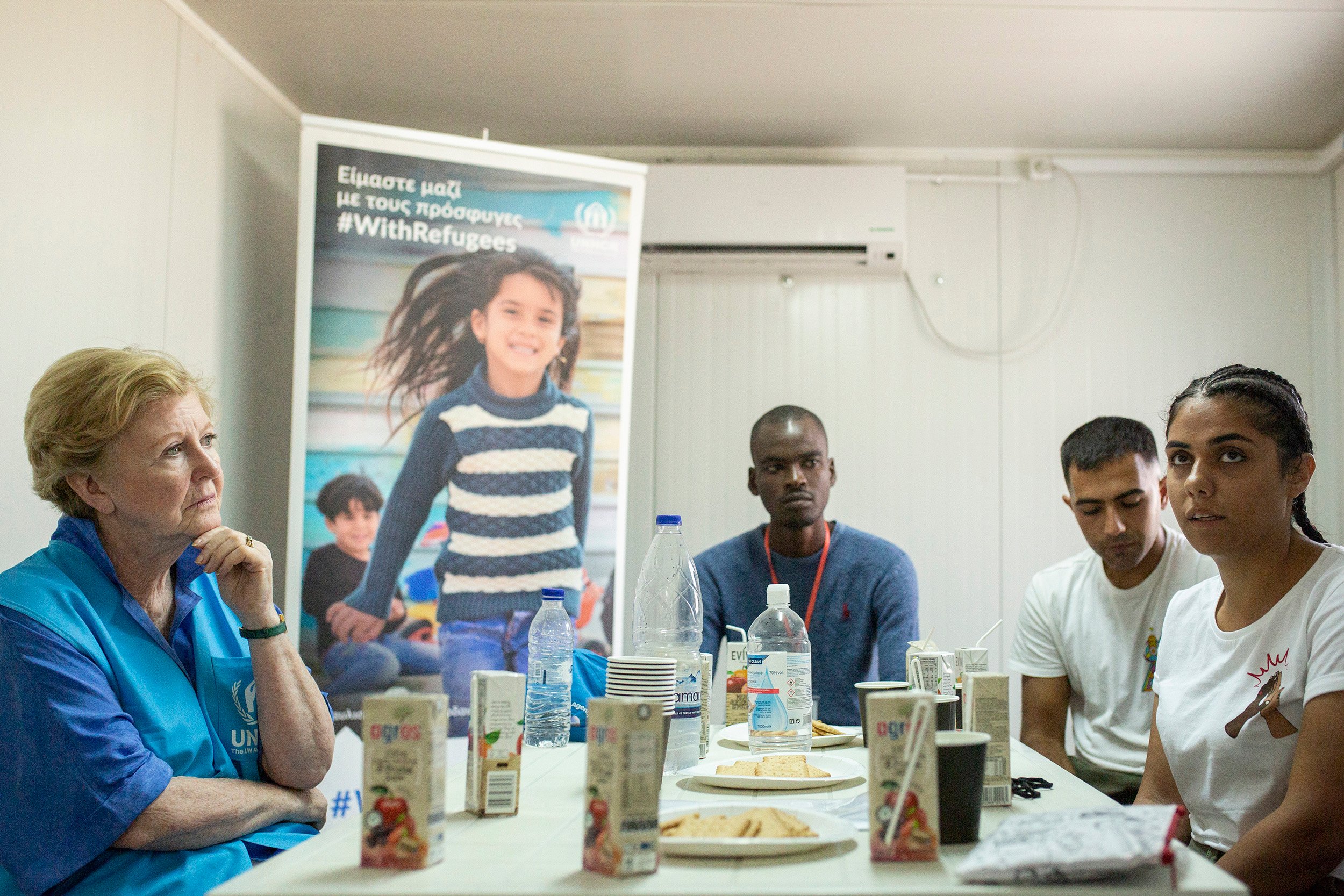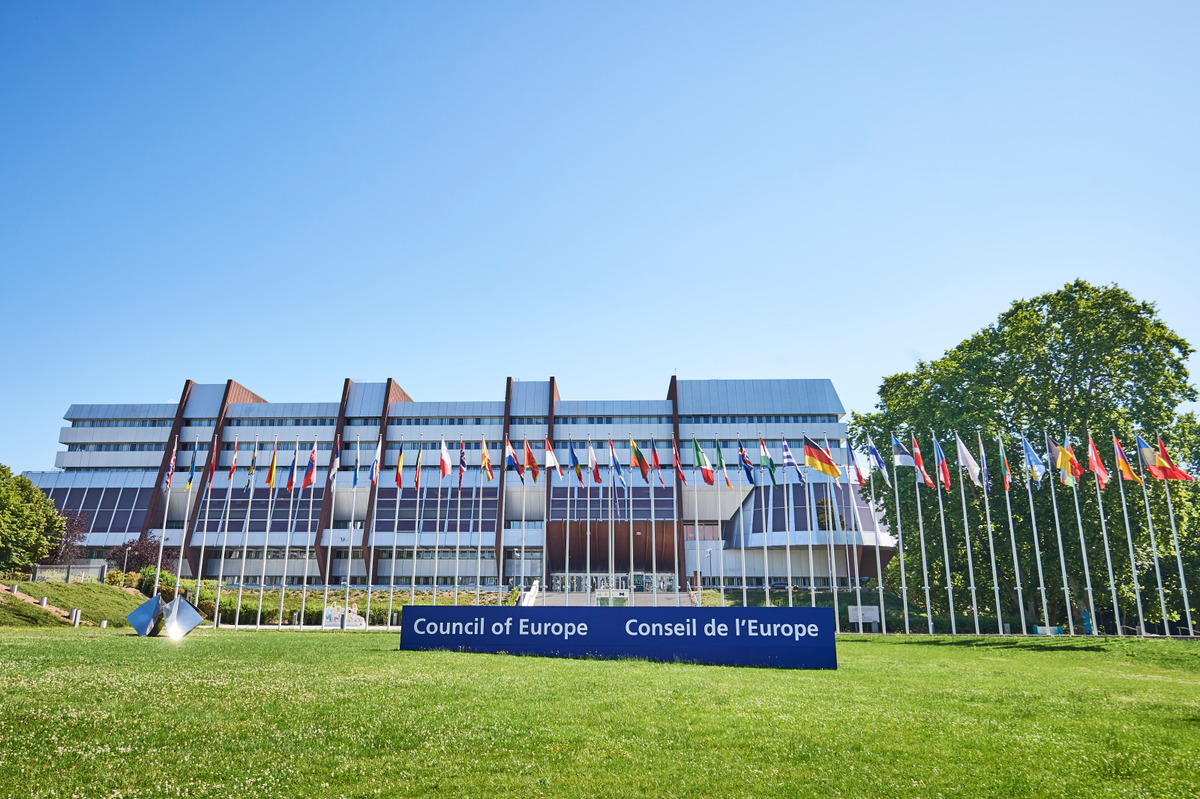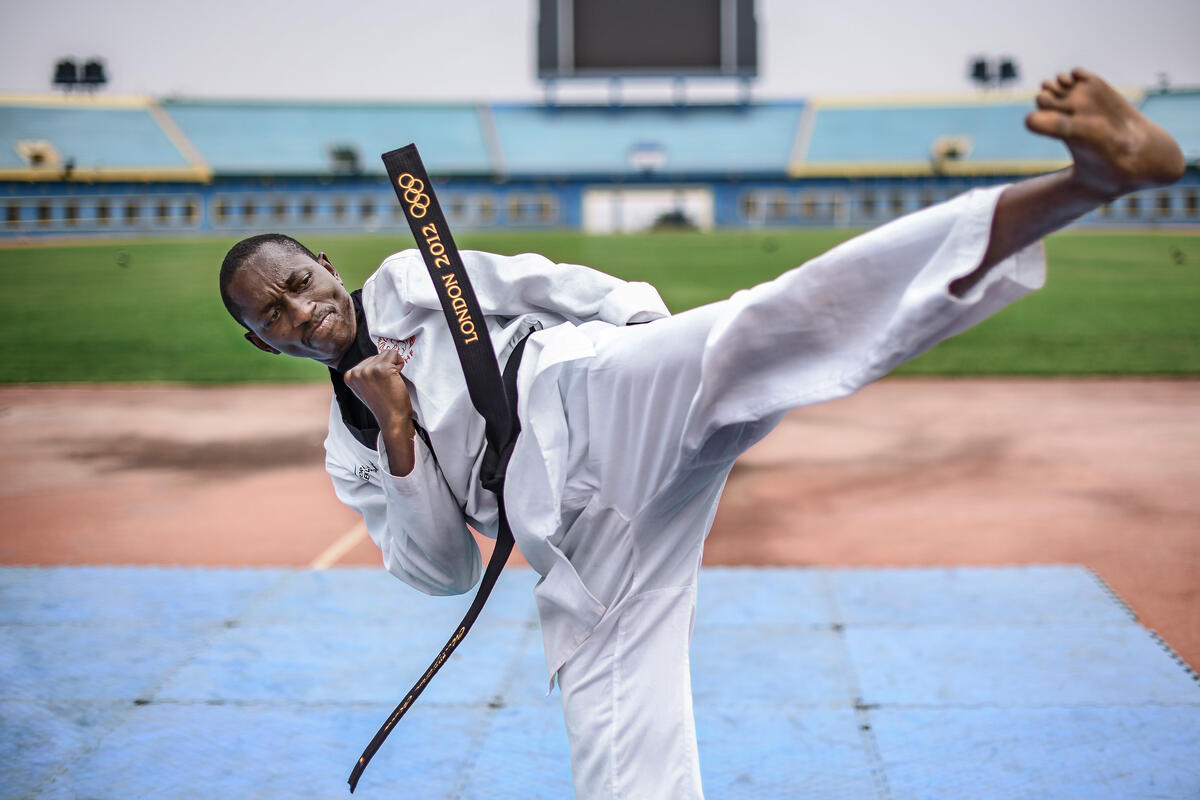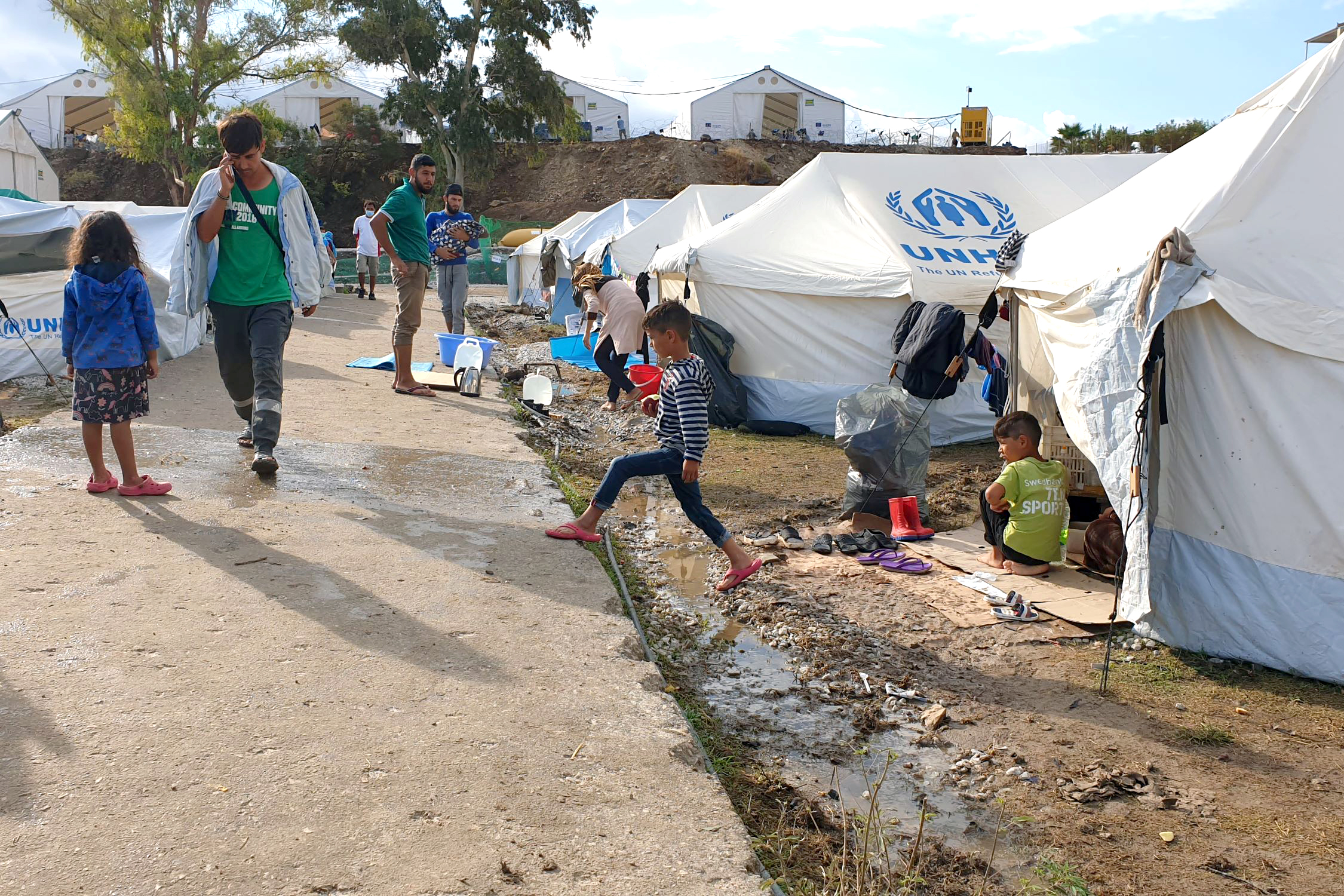Vulnerable asylum-seekers struggle to access medical care on overcrowded Greek islands
Vulnerable asylum-seekers struggle to access medical care on overcrowded Greek islands
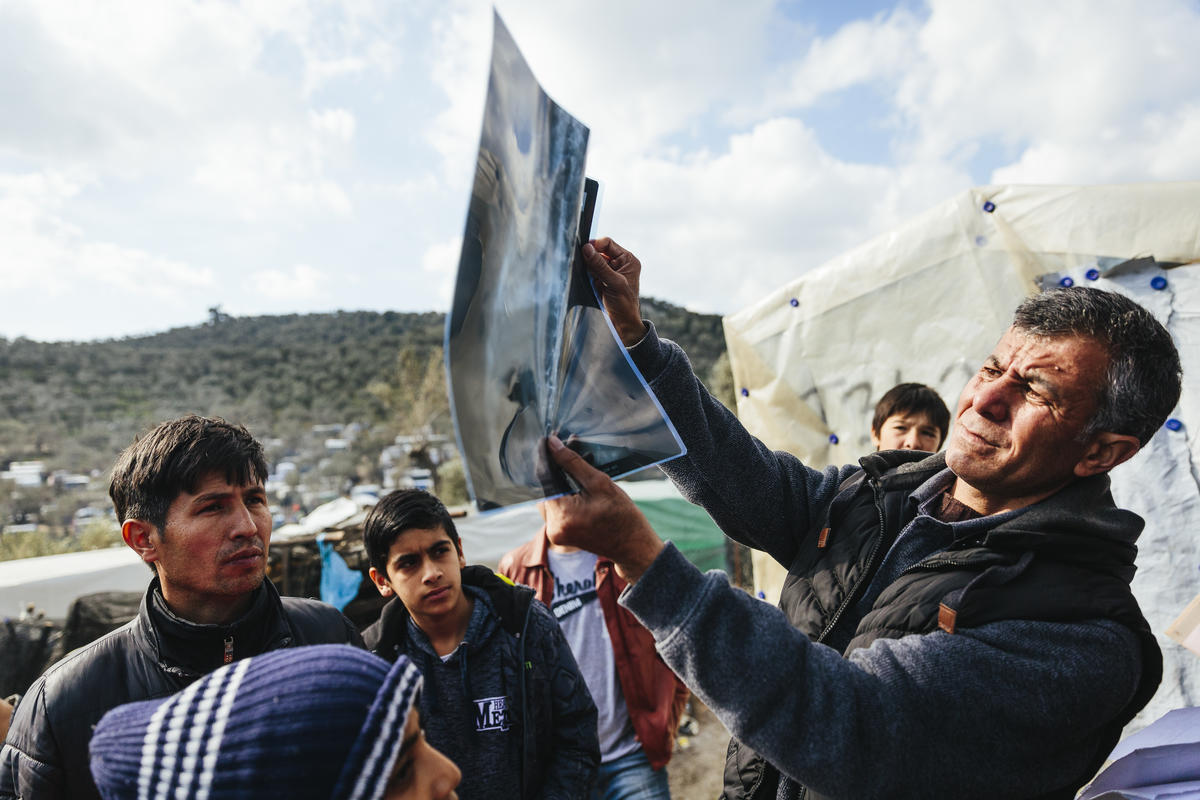
Last year, conditions at the biggest reception centre for asylum-seekers on the Greek islands were grim. People lacked even the basics in terms of hygiene, toilets, security and medical services, and UNHCR, the UN Refugee Agency, called for urgent improvements.
Since then, things at Moria have become even more difficult.
Sardar, an asylum-seeker from Afghanistan, feels the problems more acutely than many. For years, he worked as a medical doctor at a hospital in northern Afghanistan and lived in a large house. Then he was forced to flee.
For the last few weeks, his home has been a small tent on the edge of the centre. He lives there with his wife and their four children as well as his father-in-law, who was blinded in a rocket attack years ago and needs care.
“Life is very difficult here… Conditions in this camp are not acceptable,” Sardar said.
One of the main reasons for the strained resources is a lack of action on the transfer of asylum-seekers to appropriate accommodation on the mainland. While new people keep arriving, very few are able to leave – and the numbers keep growing.
Moria is the largest of five centres on Greece’s Aegean islands and has become a symbol of Europe’s response to the arrival of asylum-seekers and migrants on boats from nearby Turkey. The centre was constructed to shelter around 2,200 people. In recent months, however, the population in the area has swelled to over 18,000 people. Most new arrivals such as Sardar are housed in makeshift shelters in a nearby olive grove.
Now most people must walk further and queue for hours to get food, water and to wash. Blue plastic bags filled with rubbish are strewn throughout the centre, electricity cuts are frequent and in the informal settlement each toilet is shared by more than 100 people. Many adults have resorted to using diapers at night to avoid having to leave their tents and queue for the toilet in the dark.
UNHCR is once again urging Greece to intensify efforts to address overcrowding and improve conditions. It has appealed to the Greek government to use emergency measures to expedite its plans to transfer a greater number of asylum-seekers to appropriate accommodation on the mainland.
“UNHCR is ready to assist with transfers to the mainland and in finding quick ways to increase reception capacity, such as with cash for shelter to be able to rent an apartment in addition to the difficult and time-consuming process of creating new accommodation sites,” said UNHCR's Representative in Greece, Philippe Leclerc.
Under the ESTIA (emergency support to integration and accommodation) programme, funded by the European Commission, UNHCR and the Greek government are supporting some of the most vulnerable asylum-seekers with 25,700 places in apartments across Greece, in partnership with mayors and NGOs. Over 90,000 asylum-seekers and refugees receive monthly cash assistance through the same successful programme.
Sardar is very frustrated about this situation. As a doctor, he feels well positioned to help, but his qualifications are only recognized in his home country.
Instead, he spends most days lining up to collect rations of food and water. One day last week, he went with his children to a communal water point. The taps had run dry so they were unable to fill their plastic bottles.
Walking back along a muddy track, he came across another Afghan man, Abdul, 67, sitting on a stool outside his tent. In Afghanistan, Abdul had been diagnosed with lung cancer. Abdul said he had been treated with nothing more than paracetamol since arriving in the camp.
Sardar could only examine his X-rays, holding them up to the sunlight, and then shrug his shoulders helplessly.
Medical workers at Moria and the local hospital are overwhelmed. NGO and volunteer doctors work around the clock. Even so, often they can only attend to the most urgent emergency cases and even serious chronic conditions are left untreated.
Despite the conditions, people at the centre do everything possible to make life more comfortable for their families. Trash fills the alleyways, but tents are kept clean and tidy. Families make bread each day in ovens they have dug into the earth. Children receive no formal schooling, but many play games such as marbles or football.
At the same time, many families face problems they cannot resolve themselves.
A Syrian father tells of his four-year-old daughter who lost her hearing when a shell hit the family home in eastern Syria two years ago. They arrived at Moria last October but have been told they need to see a specialist in Athens for a full diagnosis and possible treatment. For now, they have no other option than to wait.
“Kids her age are learning the first letters and to speak properly and it breaks my heart,” he said. “She can't hear to learn.”
Authorities have tried improving the situation for people considered most vulnerable, such as unaccompanied minors and single mothers. Even so, the increase in numbers means that people forced to wait for the help they need are now having to wait even longer.
UNHCR is calling for EU member states to demonstrate their solidarity and help to alleviate pressure by relocating asylum-seekers.


